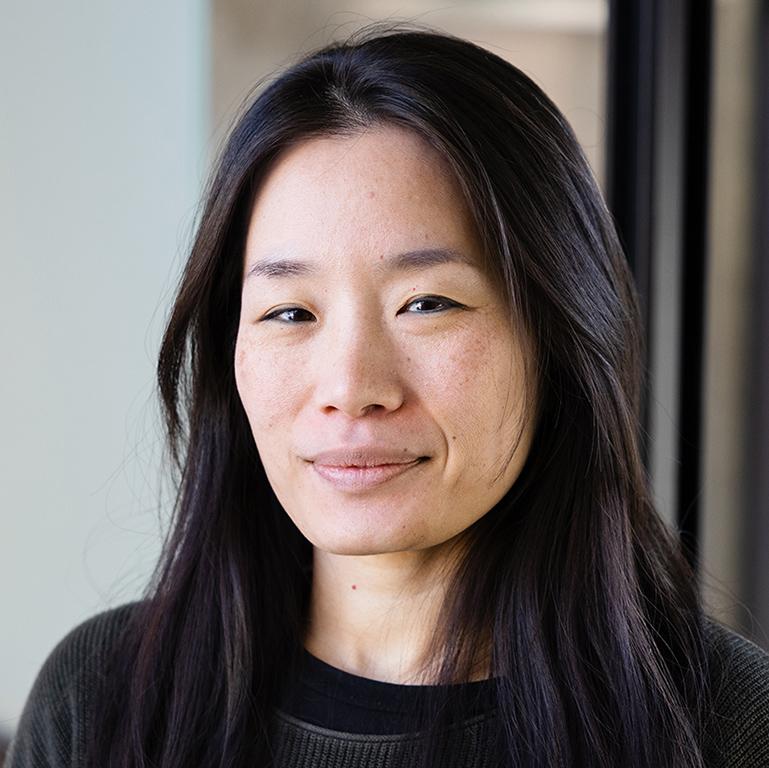UVA’s Landscape Architecture Foundation Studio receives Inaugural Tulane Prize for Climate Change Curriculum in the Built Environment

Tulane University’s Center on Climate Change and Urbanism (CCU), within the Tulane School of Architecture and Built Environment, has awarded top honors to three faculty members from two institutions for their significant achievements in teaching climate change. To foster innovation in the development of climate change curriculum, CCU hosts the Tulane Prize for Climate Change Curriculum in the Built Environment. This prize is awarded annually to faculty members who demonstrate excellence in the development of core and elective curriculum in climate change and the built environment.
Among an international roster of nominations, the selected awardees and honorees represent benchmark contributions for their work in developing cutting-edge curriculum relating to climate change mitigation and adaptation in the training of future urban planners, architects, landscape architects, urban designers, and other allied professions of the built environment. Recognized syllabi may be accessed at climatesyllabus.org, which serves as a repository for hundreds of courses, studios, and seminars. This year, the awardees will be awarded a total sum of $10,000 in recognition of their achievements.
In the Landscape Architecture category, we are excited to announce that UVA School of Architecture Professors Bradley Cantrell (studio coordinator) and Leena Cho received this year’s top honor for their Foundation Studio IV curriculum.
|
Image

|
Image

|
This studio, titled Foundation Studio IV – Prototyping the Bay: Landscape as Medium is a graduate-level design studio at the University of Virginia that explores landscape architecture’s role in climate adaptation and mitigation. Focused on the Chesapeake Bay, the studio integrates research, dynamic modeling, and speculative design strategies to address the impacts of a changing climate. Students develop proposals for experimental landscape infrastructures with live models, material experimentation, and dynamic coastal interventions. The course fosters a pedagogical framework emphasizing landscape as an evolving infrastructure, preparing students to engage critically with climate uncertainties through innovative and adaptive design methods.

In addition, the studio has been developed and evolved by a dedicated teaching team over the last seven years, each of whom have been instrumental to its ongoing development and sustained success: Brian Davis, Michael Ezban, Brad Goetz, Isaac Hametz, Andrea Hansen, Sean Kois, William Shivers, and Zihao Zhang. Each year the teaching teams have also been supported by a superb group of student instructional assistants that have contributed to the workshops and studio coordination.


The course is structured around three modules, each fostering a methodological framework that fosters an exploration of landscape architecture’s capacity to operate at the intersection of ecology, hydrology, infrastructure, and cultural systems to propose actionable strategies for climate adaptation.
Module I: Unpacking the Bay introduces students to large-scale environmental and sociopolitical dynamics through mapping, modeling, and research. The work emphasizes territorial and temporal complexities, allowing students to frame climate-related challenges within a systems thinking approach.
Module II: Systems, Models, and Surrogates shifts focus to prototypical interventions, where students test design methodologies to address issues of coastal erosion, sea-level rise, and ecosystem migration. This phase encourages speculative thinking through computational modeling, material experimentation, and climate-responsive design strategies.
Module III: Landscape as Experiment culminates in the development of site-specific, experimental landscapes that function as adaptive infrastructures. The work challenges conventional static design solutions by embedding monitoring, feedback loops, and emergent ecological interactions into the built environment.


The studio contributes to the broader discourse on climate-responsive design by positioning landscape architecture as a mediator between environmental flux and human adaptation. The pedagogical approach challenges students to engage with climate uncertainty through scientific modeling, material agency, and speculative futures, fostering innovation in the development of resilient landscapes.
As part of this core studio in the Master of Landscape Architecture curriculum, students produce a diverse body of work, including GIS-based climate modeling, hybrid material experiments, hydrodynamic simulations, and strategic landscape interventions. The studio’s focus on the Chesapeake Bay as a site of ecological, infrastructural, and socio-political transformation offers students an applied context for advancing climate curriculum in landscape architecture, urban planning, and environmental design.


Cantrell and Cho jointly receive the inaugural 2024-2025 Tulane Prize for Climate Change Curriculum in the Built Environment with Professor David Hsu from the Massachusetts Institute of Technology who was selected as the top recipient in the Urban Planning category.
Eight additional faculty members and their curricula were recognized for honorable achievement for their unique and impactful thematic contributions to climate curriculum:
Honorable Achievement for Climate Change Curriculum in History and Theory
Professor Esra Akcan, Cornell University
Climate: History: Architecture
Honorable Achievement for Climate Change Curriculum in Climate Justice
Professor Billy Fleming, Temple University
Designing a Green New Deal (Studio Sequence)
Honorable Achievement for Climate Change Curriculum in Energy and Design
Professor Mary Guzowski, University of Minnesota
Bio-Inspired Net-Positive Design Studio
Honorable Achievement for Climate Change Curriculum in Community Engaged Design
Professor Laura Cipriani, TU Delft
Climate Change as a Game: (Co)Designing with Children the Landscape of the Future
Honorable Achievement for Climate Change Curriculum in Latin American and Caribbean Studies
Professor Pedro Cruz Cruz and Professor Nandini Bagchee, City College of New York
Archipelagic Estates of Puerto Rico: Islands and Island Cultures in Light of Climate Change
Honorable Achievement for Climate Change Curriculum in Studio Pedagogy
Professor Liz Gálvez, University of California, Berkeley
Collective Comfort
Honorable Achievement for Interdisciplinary Climate Change Curriculum in Landscape Architecture Professor Kira Clingen, Harvard University
Place-Based Scenario Planning for the Climate Emergency
Honorable Achievement for Interdisciplinary Climate Change Curriculum in Architecture
Professor José Ibarra, University of Colorado Denver and Cornell University
Climate Forecasts: Architecture in 2100
